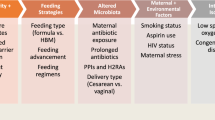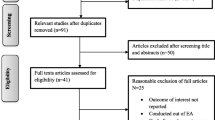Abstract
Oral rehydration therapy (ORT) is one of the essential components of child survival technologies which are currently being utilised to reduce morbidity and mortality on account of common illnesses. ORT has made it possible to undertake a global effort to reduce deaths from dehydration and diarrhea associated malnutrition. Appropriate case management can also combat deaths from dysentery and persistent diarrhea. During the last decade considerable success has been achieved by incorporating this simple, effective and economic therapeutic intervention in the primary health care package. However, the ultimate objective of improved case management of diarrhea including the use of ORT at all levels of health care system is yet to be achieved. Patients with dysentery need antimicrobial therapy apart from ORT. Clinical experience has shown that with ORT and appropriate dietary therapy, most patients with persistent diarrhea can be managed effectively. Unfortunately, injudicious use of intravenous fluids and irrational prescription of antibiotics and anti-diarrheal agents is quite common even in the hands of pediatricians. The training of mothers visiting health facilities is poor for ORT and feeding. Establishment of diarrhea training and treatment units (DTUs) is aimed to improve current practices in the teaching hospitals and to promote appropriate case management of diarrhea by all health personnel.
Similar content being viewed by others
References
Sigh T. Inadequacies in the management of diarrhea at the peripheral non-teaching level.Indian J Pediatr 1991; 57: 89–92.
Ocampo PDS. Health professional school training. Addendum to theProceedings of Third International Conference on Oral Rehydration Therapy (ICORT-III) Washington D.C., 1988; 33–37.
Nalin DR. The role of hospitals in the management of diarrheal diseases with particular reference to oral rehydration therapy.Proceedings of the International Conference on Oral Rehydration Therapy, Washington D.C., 1983; 58–61.
World Health Organization. Programmc for control of diarrheal diseases.Seventh Programme Report 1988-89, Geneva, W.H.O., 8–11.
Government of India. Ministry of Health and Family WelfareNational Diarrheal Diseases Control Programme, New Delhi; 1988: 16–17.
World Health Organisation.The Treatment and Prevention of Acute Diarrhea-Practical Guidelines, Second Edition, Geneva; W.H.O., 1990; 31–47.
Lulseged S. The role of diarrheal training units: The example from Ethiopia. Addendum to theProceedings of Third International Conference on Oral Rehydration Therapy (ICORT-III) Washington D.C., 1988; 30–33.
Patwari AK, Kumar H, Anand VK et al. Diarrhea training and treatment unit-Experience from a teaching hospital.Indian J Pediatr 1991; 58: 775–781.
World Health Organisation.Diarrhea Training Unit-Directors Guide, W.H.O., 1988, CDD/SER/86/REV I.
World Health Organisation.Diarrhea Management Training Course-Guidelines for Conducting Clinical Training Courses at Health Centres and Small Hospitals, Geneva; 1990, W.H.O., CDD/SER/90-2.
Author information
Authors and Affiliations
Rights and permissions
About this article
Cite this article
Patwari, A.K. Cost effective strategy for promotion of appropriate case management of diarrheal diseases — Establishment of DTUs. Indian J Pediatr 58, 783–787 (1991). https://doi.org/10.1007/BF02825435
Issue Date:
DOI: https://doi.org/10.1007/BF02825435




